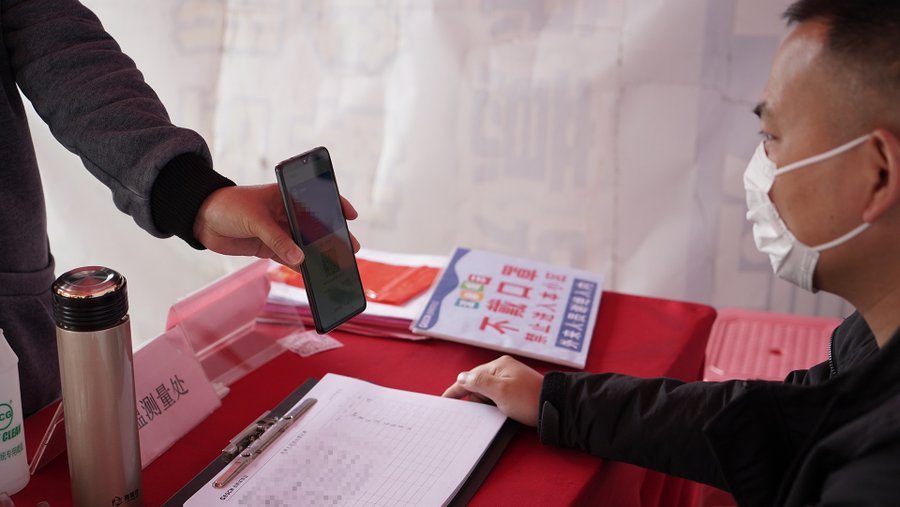 >
>
The lockdown in some parts of China occasioned by the outbreak of the COVID-19 has officially come to an end and people are now free to move around. However, that freedom of movement depends on phone app health QR codes developed by the government.
Authorities say the “health code” service which runs on WeChat and Alipay, is designed to prevent more infections as workers go back to work in order to revive an economy put on reverse since December 2019. It is now being used to manage the people’s movement in and out of affected areas.
The codes give a holder colour-coded designations based on their health status and travel history, and a QR code that can be scanned by authorities.
As it stands, anyone willing to use a transport service or trying to access a restaurant, shop, hotel or any other public building, is asked to show a code on his or her phone. The attendant on duty will scan the barcode with his own smartphone to generate a colour code with the holder’s identity card number. A green code means the holder is symptom-free and allowed to travel or move around. A yellow code indicates that the person should be in home isolation, while a red code means the user is a confirmed Covid-19 patient and should be in quarantine.
How it works
The apps generally pull out medical information including symptoms (such as fever, cough), medical treatment, isolated observation, contact information, travel history of an affected area, and the user’s travel history including the mode of travel and even vehicle and driver details.

To use the Alipay app, applicants have to supply their contact details, passport details, recent travel history and relevant medical certification. WeChat app on the other hand requires the users’ basic identity, address details, the history of close contact with suspected patients, travel history and his or her residential address outside the current city of residence.
Concerns
Even though many citizens say the digital approach gives them the confidence to move around as those with red or yellow codes will not want to be caught, others think it extends the government’s over-reaching attempt to access people’s private lives and data as part of efforts to keep every citizen under surveillance and control. Some Chinese social media users have complained about a lack of transparency over how the app works and what data it is storing.
Those caught with red or yellow codes in public risk being marked down in the social credit system designed to enforce obedience to official rules. A statement by the government of Heilongjiang province in the northeast said “fraud, concealment and other behaviors” carry penalties that “will have a huge impact on their future life and work”.
“People with too many demerits for violations ranging from committing felonies to littering can be blocked from buying plane tickets, getting loans, obtaining government jobs or leaving the country,” a report by Associated Press said.
Chinese citizens are already under a matrix of high-tech surveillance that tracks what they do in public, online and even at work.
Owned by Chinese tech giant, WeChat, has more than a billion monthly users, just behind Facebook’s WhatsApp and Messenger. It is China’s version of WhatsApp but offers much more than messaging, allowing its users to do everything from payments to the ability to book flights and hotels. It has over 900 million users in China.
Alipay, owned by Ant Financial controlled by Alibaba Group and its founder Jack Ma, is a third-party mobile and online payment platform. It has over a billion users worldwide with almost 700 million in China alone.











![[JUST IN] FULL LIST: Lagos, Ekiti seven others get new Resident Electoral Commissioners](https://newspeakspaces.nyc3.cdn.digitaloceanspaces.com/wp-content/uploads/2023/10/25172242/President-Bola-Ahmed-Tinubu-signing-documents-1024x570-1-75x75.jpg)
























